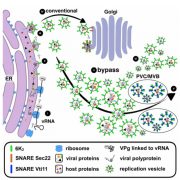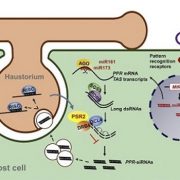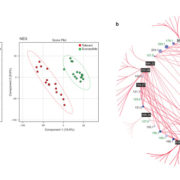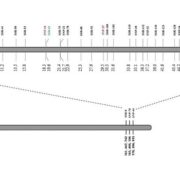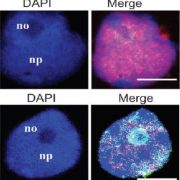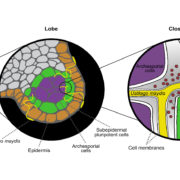Aphid-borne viral spread is enhanced by virus-induced accumulation of plant reactive oxygen species (Plant Physiol)
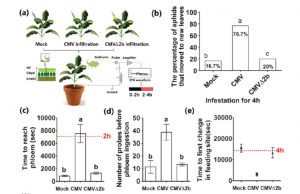 Aphids are major vectors for viral spread. Guo et al. have identified an interesting interaction that affects aphid feeding behavior and viral spread. They showed that reactive oxygen species (ROS) accumulation in plants infected with cucumber mosaic virus (CMV) affects aphid feeding behavior; specifically, it increases the frequency with which the stylets are inserted, delays penetration of phloem, and leads to increased aphid movement between leaves, all of which increase the exposure of the aphids to the virus. The contribution of ROS was demonstrated through exogenous ROS treatment of non-infected leaves. Furthermore, the viral suppressor protein VSR2b contributes to ROS production and therefore affects aphid feeding behavior. When plants are infected with CMV mutants lacking 2b (CMVΔ2b), ROS production is limited, aphids do not move as much, and viral spread is reduced. Plant Physiol. 10.1104/pp.18.00437
Aphids are major vectors for viral spread. Guo et al. have identified an interesting interaction that affects aphid feeding behavior and viral spread. They showed that reactive oxygen species (ROS) accumulation in plants infected with cucumber mosaic virus (CMV) affects aphid feeding behavior; specifically, it increases the frequency with which the stylets are inserted, delays penetration of phloem, and leads to increased aphid movement between leaves, all of which increase the exposure of the aphids to the virus. The contribution of ROS was demonstrated through exogenous ROS treatment of non-infected leaves. Furthermore, the viral suppressor protein VSR2b contributes to ROS production and therefore affects aphid feeding behavior. When plants are infected with CMV mutants lacking 2b (CMVΔ2b), ROS production is limited, aphids do not move as much, and viral spread is reduced. Plant Physiol. 10.1104/pp.18.00437


